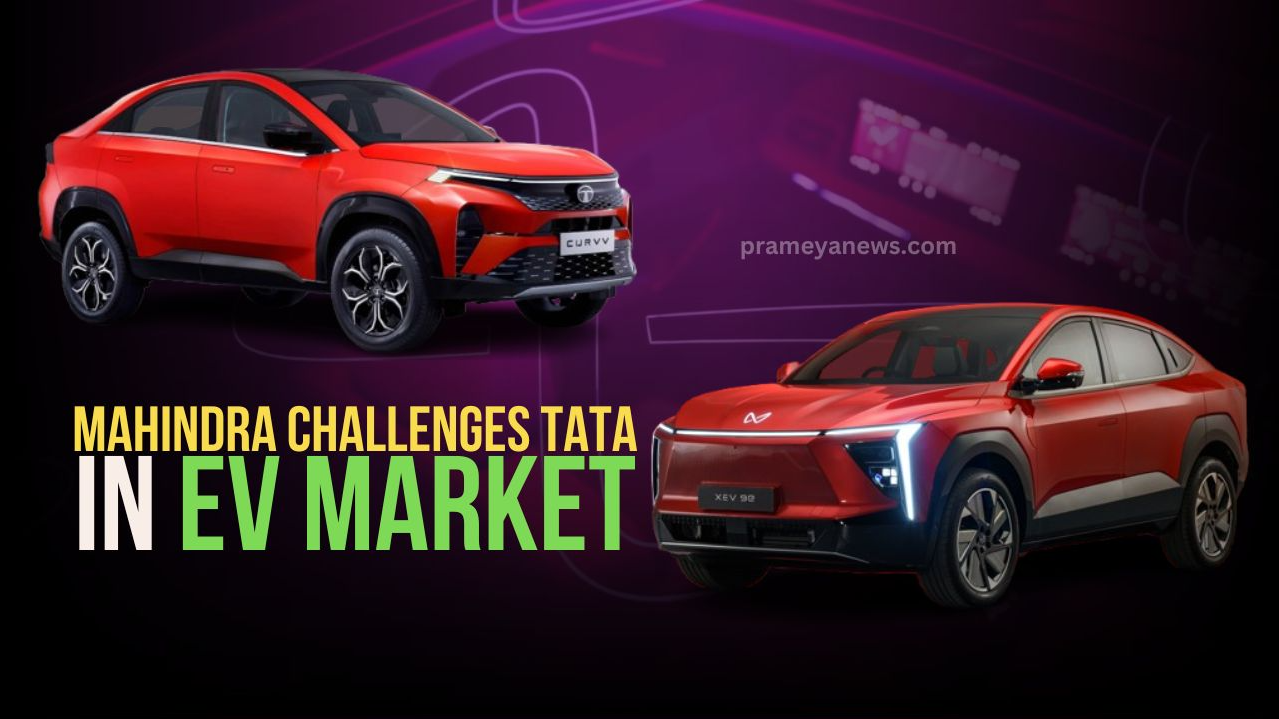

The Indian electric vehicle (EV) market is heating up, and Mahindra & Mahindra (M&M) is revving its engines to take on the reigning champion, Tata Motors. With the ambitious goal of achieving 30% of its passenger vehicle sales from electric SUVs by 2027, Mahindra has unveiled two cutting-edge models, the BE 6e and XEV 9e, priced competitively at Rs 18.9 lakh and Rs 21.9 lakh, respectively.
Tata Motors currently holds a commanding lead in the Indian EV landscape, capturing nearly 65% of the market share with its diverse portfolio of electric cars, including the Tiago EV, Tigor EV, Nexon EV, and Curvv EV. However, Mahindra's entry into the premium e-SUV segment is poised to disrupt the status quo.
These new Mahindra e-SUVs, built on the INGLO platform, boast impressive features, including 59 kWh and 79 kWh battery packs, offering a claimed range of over 500 km per charge. This directly challenges Tata Motors' dominance in the burgeoning EV market.
Mahindra is strategically targeting the lucrative SUV segment, aiming to capture a significant chunk of the market currently dominated by internal combustion engine vehicles (ICEVs) priced between Rs 20-30 lakh. This segment sees monthly sales of 18,000-23,000 units, presenting a substantial opportunity for Mahindra's new e-SUVs.
While Tata Motors enjoys an early-mover advantage and a wider product range, Mahindra is confident in its ability to compete. Rajesh Jejurikar, ED & CEO of M&M's Auto & Farm Division, emphasizes the company's focus on consumer needs and its commitment to delivering exciting products that will expand the EV market.
This competition is not just a battle between two auto giants; it's a crucial turning point for India's electric mobility ecosystem. Mahindra's entry is expected to accelerate EV adoption and offer consumers greater choice and value.
Mahindra's foray into the premium e-SUV segment marks a significant development in the Indian EV market.4 With competitive pricing, impressive range, and a focus on consumer needs, Mahindra's new electric vehicles have the potential to disrupt Tata Motors' dominance and drive further innovation in the industry. This competition will ultimately benefit consumers, offering them a wider range of choices and accelerating India's transition towards a cleaner and more sustainable transportation future. The race for EV supremacy has begun, and it promises to be an exciting one to watch.